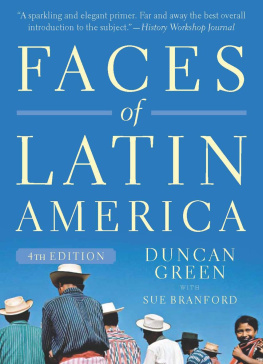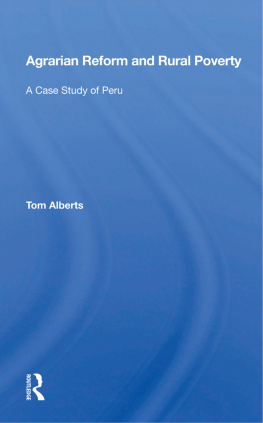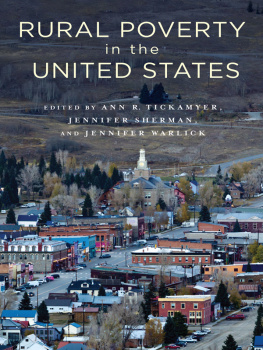Cynthia M. Duncan - Worlds Apart: Poverty and Politics in Rural America
Here you can read online Cynthia M. Duncan - Worlds Apart: Poverty and Politics in Rural America full text of the book (entire story) in english for free. Download pdf and epub, get meaning, cover and reviews about this ebook. year: 2014, publisher: Yale University Press, genre: Politics. Description of the work, (preface) as well as reviews are available. Best literature library LitArk.com created for fans of good reading and offers a wide selection of genres:
Romance novel
Science fiction
Adventure
Detective
Science
History
Home and family
Prose
Art
Politics
Computer
Non-fiction
Religion
Business
Children
Humor
Choose a favorite category and find really read worthwhile books. Enjoy immersion in the world of imagination, feel the emotions of the characters or learn something new for yourself, make an fascinating discovery.

- Book:Worlds Apart: Poverty and Politics in Rural America
- Author:
- Publisher:Yale University Press
- Genre:
- Year:2014
- Rating:5 / 5
- Favourites:Add to favourites
- Your mark:
- 100
- 1
- 2
- 3
- 4
- 5
Worlds Apart: Poverty and Politics in Rural America: summary, description and annotation
We offer to read an annotation, description, summary or preface (depends on what the author of the book "Worlds Apart: Poverty and Politics in Rural America" wrote himself). If you haven't found the necessary information about the book — write in the comments, we will try to find it.
Worlds Apart: Poverty and Politics in Rural America — read online for free the complete book (whole text) full work
Below is the text of the book, divided by pages. System saving the place of the last page read, allows you to conveniently read the book "Worlds Apart: Poverty and Politics in Rural America" online for free, without having to search again every time where you left off. Put a bookmark, and you can go to the page where you finished reading at any time.
Font size:
Interval:
Bookmark:
WORLDS APART

CYNTHIA M. DUNCAN
Second Edition
Foreword by Angela Glover Blackwell

Published with assistance from the foundation established in memory of Philip Hamilton McMillan of the Class of 1894, Yale College.
First edition published 1999 as Worlds Apart: Why Poverty
Persists in Rural America. Second edition 2014.
Copyright 1999, 2014 by Yale University.
Foreword copyright 2014 by Angela Glover Blackwell.
All rights reserved.
This book may not be reproduced, in whole or in part, including illustrations, in any form (beyond that copying permitted by Sections 107 and 108 of the U.S. Copyright Law and except by reviewers for the public press), without written permission from the publishers.
Designed by Jeanette Olender and set in Granjon type by Newgen North America.
Printed in the United States of America by R. R. Donnelley & Sons, Harrisonburg, Virginia.
Library of Congress Cataloging-in-Publication Data
Duncan, Cynthia M.
Worlds apart: poverty and politics in rural America / Cynthia M.
DuncanSecond edition.
p. cm.
Includes bibliographical references and index.
ISBN 9780300196597 (alk. paper)
1. PovertyUnited States. 2. Rural poorUnited StatesInterviews.
3. United StatesRural conditions. 4. United StatesSocial conditions1980
I. Title.
HC110.P6D86 2014
305.5690973dc23 2014009145
A catalogue record for this book is available from the British Library.
The paper in this book meets the guidelines for permanence and durability of the Committee on Production Guidelines for Book Longevity of the Council on Library Resources.
10 9 8 7 6 5 4 3 2 1
For Bill Duncan

chapter one
Blackwell: Rigid Classes and Corrupt Politics in Appalachias Coal Fields
chapter two
Dahlia: Racial Segregation and Planter Control in the Mississippi Delta
chapter three
Gray Mountain: Equality and Civic Involvement in Northern New England
chapter four
Social Change and Social Policy
President Barack Obama has called inequality the defining challenge for America in the twenty-first century. The economic model of recent decades is failing nearly everyone except those at the very top. This is true not only for the very poor but also for lower- and middle-income families. It is especially true in rural communities, where poverty and isolation combine with spatial challenges and a history of disinvestment.
When the first edition of Worlds Apart was published, the United States economy seemed to be flying high. The stock market was soaring. The national unemployment rate was only 4 percent, the lowest in nearly a quarter century. Yet poverty persisted. Professor Duncan painted an unforgettable picture of what that looked like in rural America and examined the economic and political forces that left so many remote communities behind.
Things are different now.
The apparent prosperity of the late 1990s and early 2000s turned out to be a bubble that obscured deep structural problems in the U.S. economy. Good jobs are disappearing, the middle class is shrinking, and inequality has reached an all-time high. More than 100 million peoplea third of the populationlive in or near poverty, and for the first time in modern history, employment does not offer a sure path out. Millions of people work in low-wage jobs that leave them struggling to make ends meet.
In the shadow of worsening economic insecurity, the nations overall rural population dipped from 2010 to 2012the first net loss ever recorded. Only 230 rural counties had growth rates higher than the national average of 1.7 percent, while 1,200 rural counties lost population.
America also looks different for another reason: the historic shift in demographics. By midcentury, a majority of the population will be people of color. Already, most babies born in the United States are infants of color. By 2020, more than half of all Americans under the age of nineteen will be of color, and they are more than twice as likely as their white counterparts to grow up poor. In the global economy, diversity can be a tremendous asset for communities, regions, and the nation as a whole. But if racial inequality is allowed to continue, and widen the gaps in education, employment, health, and wealth, the results will be slower economic growth, lower wages for almost everyone, and dimmer hopes for future generations.
To respond to the economic crisis and the shifting demographics, the nation urgently needs to build an equitable economyone that produces good jobs and full employment, upgrades the skills and education of our increasingly diverse workforce, and creates opportunities for all people, regardless of where they live, to participate, prosper, and reach their full potential. Rural communities, like inner city, urban, and suburban neighborhoods, need these strategies to be tailored to their particular realities.
Rural America, of course, is not a single entity but an array of places and peoples: tribal lands carved from the nations original sin; communities in the Mississippi Delta that bear the legacy of slavery; the colonias along the Mexican border and thousands of similar unincorporated hamlets in Californias Central Valley. Many rank among the poorest, most neglected places in our nation, lacking such basics as functioning water and sewer systems.
Rural America includes communities rapidly being absorbed by ever growing suburbs; farmland and an agricultural economy increasingly hampered by a broken immigration system that fails to support a predictable and stable workforce; and small manufacturing and processing towns in Georgia, Tennessee, Kentucky, and Arkansas that have the fastest-growing immigrant populations in the nation. While some of these communities have resisted the newcomers, with anti-immigrant sentiment and restrictive policies, others are reinventing themselves as places of shared prosperity and inclusion for the new generation of Americans.
Every rural community is shaped by its history, geography, and political and economic landscape. Yet each faces challenges playing out all across America. Addressing every communitys needs while connecting them to the broad-based struggle for justice and fairness in America will produce equityjust and fair inclusion into a society in which all can participate and prosper. Equity is the antidote to the plight of isolated, disinvested communities across America, including rural communities. The nation must rethink its relationship with its rural areas, which have long provided an outsize share of the food and raw materials on which we all depend, while receiving little in return. (Case in point: of the 19 million Americans not served by broadband, a critical link to participating in the economy, three quarters live in rural areas.) And rural communities must look inwardto grapple with inequities inside their own borders, to embrace the changing faces of their towns and villages, and to reinvent themselves as communities of opportunity for all.
The equity agenda builds on the wisdom, voice, and experience of local residents. It focuses on empowering people while strengthening the places where they live. It reflects the bedrock American value of access to opportunity. It taps into the great strength of rural America, where people often take pride in the small scale of their communities, know their neighbors, and are accustomed to calling on one another to take action.
Next pageFont size:
Interval:
Bookmark:
Similar books «Worlds Apart: Poverty and Politics in Rural America»
Look at similar books to Worlds Apart: Poverty and Politics in Rural America. We have selected literature similar in name and meaning in the hope of providing readers with more options to find new, interesting, not yet read works.
Discussion, reviews of the book Worlds Apart: Poverty and Politics in Rural America and just readers' own opinions. Leave your comments, write what you think about the work, its meaning or the main characters. Specify what exactly you liked and what you didn't like, and why you think so.






